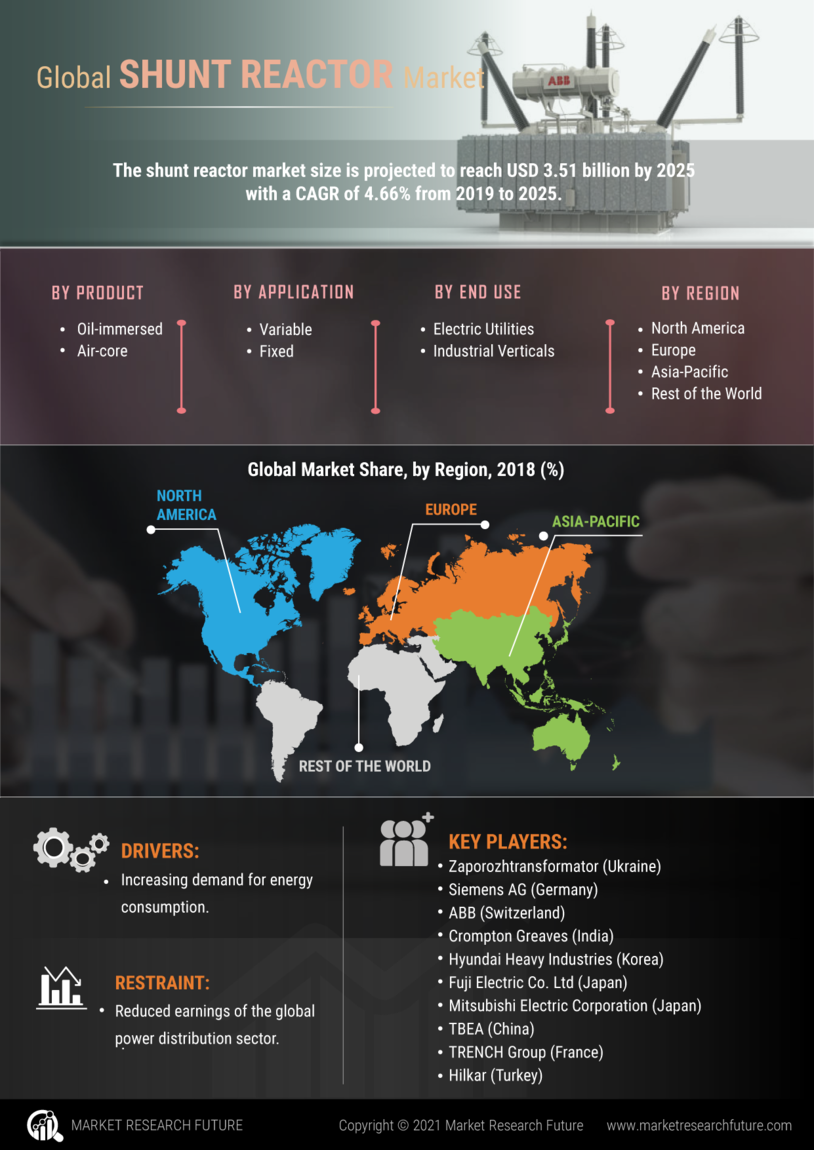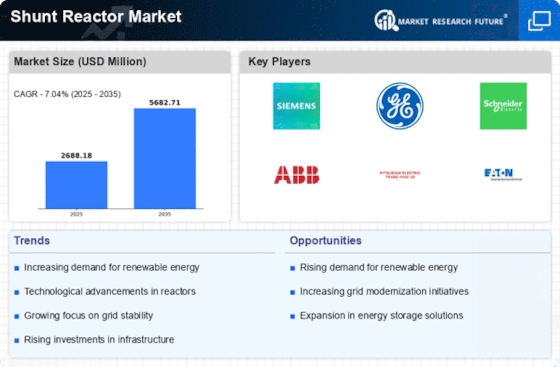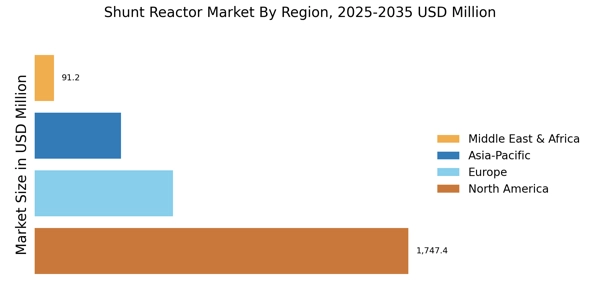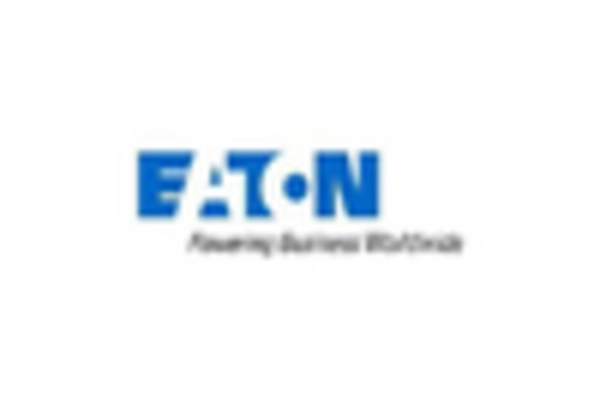Increasing Demand for Electricity
The rising demand for electricity across various sectors is a primary driver for the Shunt Reactor Market. As urbanization and industrialization continue to expand, the need for reliable and efficient power supply systems becomes paramount. This demand is reflected in the projected growth of the electricity consumption rate, which is expected to increase by approximately 2.5% annually. Consequently, utilities are investing in infrastructure upgrades, including shunt reactors, to manage voltage levels and enhance grid stability. The Shunt Reactor Market is likely to benefit from this trend, as these devices play a crucial role in mitigating voltage fluctuations and ensuring the smooth operation of electrical networks. Furthermore, the integration of smart grid technologies may further amplify the need for shunt reactors, as they are essential for maintaining power quality in increasingly complex electrical systems.
Expansion of Transmission Networks
The expansion of transmission networks is another significant driver for the Shunt Reactor Market. As countries strive to improve their energy infrastructure, the development of high-voltage transmission lines is becoming increasingly common. This expansion is often necessitated by the need to connect remote renewable energy sources to urban centers, thereby enhancing energy accessibility. According to recent data, investments in transmission infrastructure are projected to reach several billion dollars over the next decade. Shunt reactors are integral to these systems, as they help manage reactive power and maintain voltage levels across long distances. The Shunt Reactor Market is poised to experience growth as utilities and energy companies prioritize the installation of these devices to ensure the reliability and efficiency of their transmission networks.
Regulatory Frameworks and Incentives
Regulatory frameworks and incentives play a pivotal role in shaping the Shunt Reactor Market. Governments worldwide are increasingly recognizing the importance of maintaining grid stability and reliability, leading to the establishment of supportive policies. These regulations often include financial incentives for utilities to invest in reactive power management solutions, such as shunt reactors. As countries aim to meet their energy transition goals, the implementation of stringent standards for grid performance is becoming more common. This regulatory environment is likely to drive demand for shunt reactors, as utilities seek to comply with these requirements. The Shunt Reactor Market stands to benefit from this trend, as the alignment of regulatory support with market needs creates a conducive atmosphere for growth and innovation.
Integration of Renewable Energy Sources
The integration of renewable energy sources into existing power grids is a critical driver for the Shunt Reactor Market. As the share of renewables in the energy mix increases, the need for effective voltage regulation becomes more pronounced. Shunt reactors are essential in managing the reactive power generated by renewable sources, such as wind and solar, which can lead to voltage instability. The International Energy Agency indicates that renewable energy capacity is expected to grow significantly, necessitating the deployment of shunt reactors to support grid stability. This trend suggests that the Shunt Reactor Market will likely see heightened demand as utilities seek to accommodate the variability of renewable energy generation while ensuring reliable power delivery.
Technological Innovations in Shunt Reactors
Technological innovations in shunt reactors are driving advancements within the Shunt Reactor Market. Recent developments have led to the creation of more efficient and compact designs, which enhance performance while reducing installation costs. Innovations such as digital monitoring systems and improved materials are enabling shunt reactors to operate more effectively in diverse environments. The market is witnessing a shift towards smart shunt reactors that can adapt to changing grid conditions in real-time. This evolution is likely to attract investments and encourage utilities to upgrade their existing systems. As a result, the Shunt Reactor Market is expected to experience growth fueled by these technological advancements, which promise to improve the overall reliability and efficiency of electrical networks.

















